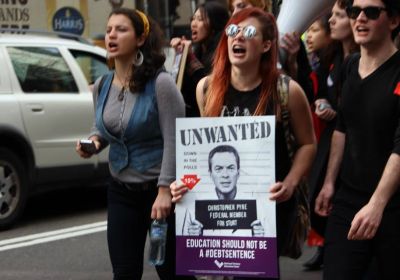
University of Sydney staff, student groups and alumni voiced their opposition to the government’s proposed education reforms at a Sydney Town Hall meeting on August 25.

University of Sydney staff, student groups and alumni voiced their opposition to the government’s proposed education reforms at a Sydney Town Hall meeting on August 25.

Nick Riemer, senior lecturer at the University of Sydney, addressed a Town Hall meeting on August 25 on the proposed deregulation of fees at Australian universities.
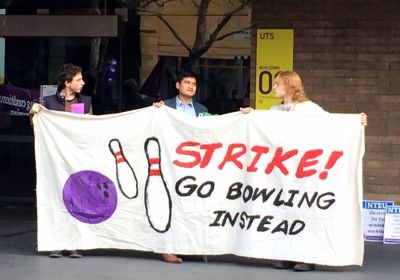
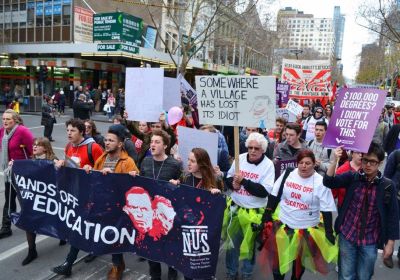
The National Union of Students (NUS) organised a national day of action on August 20 against the federal government's changes to tertiary education.
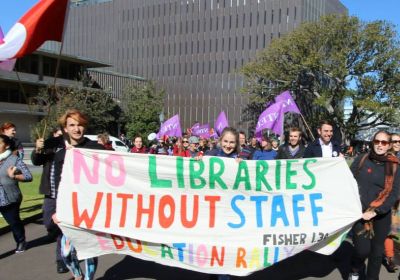

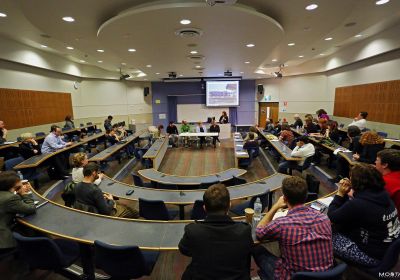
“David Cameron’s government is responsible for the most aggressive attack for over a century on our public services, our standard of living and on the future for jobs and a decent life for young people,” said the Radical Independence Campaign, which is pushing for a “yes” vote in Scotland's September 18 referendum on independence. “The millionaire cabinet are ruining the chances of a generation. By slashing services and privatising health and education they are driving our young people to despair.”